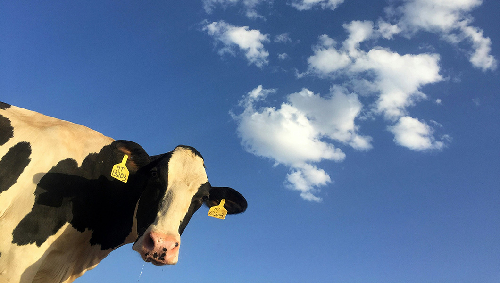In a move that has captured global attention and sparked a flurry of puns, the Danish government formally implemented the world’s first livestock flatulence tax on November 18, 2024. The groundbreaking bill, a pivotal step in the country’s battle against climate change, will require farmers to pay a tax on the potent greenhouse gas emissions—primarily methane from burps and wind—produced by their cows, pigs, and sheep starting in 2030.
The “cow-lossal” agreement is a major component of Denmark’s strategy to achieve a 70% reduction in greenhouse gas emissions from 1990 levels by 2030, and aims for climate neutrality by 2045. The agriculture sector, which is a major contributor to Denmark’s total emissions, is now formally included in the nation’s climate mitigation efforts.
While the tax has been the subject of worldwide commentary, the structure of the levy is designed to incentivize a “green transition” in the agricultural sector:
- Initial Rate: Beginning in 2030, farmers will be taxed 300 Danish kroner (approximately 43USD)pertonofcarbondioxideequivalent(\text{CO}_2\text{e}$) emitted.
- Effective Rate: A 60% income tax deduction will be applied to the average emissions per animal, lowering the effective starting cost to 120 kroner (approximately $17 USD) per ton of CO2e.
- Escalation: The tax rate will progressively increase, reaching 750 kroner per ton of CO2e by 2035, with the 60% deduction remaining in place.
For an average dairy cow, which produces roughly 6 metric tons of CO2e annually, the effective tax is estimated to start at approximately $96 per cow in 2030 and rise to about $241 per cow by 2035.
The measure is viewed by many, including the Danish Society for Nature Conservation, as a “historic compromise” and a critical innovation for the future of farming. The move contrasts with the experience in New Zealand, which had proposed a similar levy but ultimately scrapped the plan due to fierce opposition from farmers.
By being the first country to successfully pass a carbon tax on agricultural emissions, Denmark is taking a risk but hopes to “pave the way forward regionally and globally” for other nations to address the significant climate impact of livestock farming. The revenue generated from the tax will be channeled back into the agriculture sector to fund green initiatives, climate technology, and other measures designed to support farmers in adapting to more sustainable practices.







